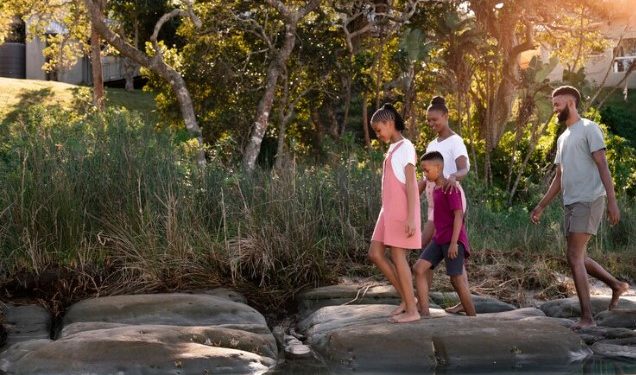Visiting Madagascar for a mission trip is not only a journey across the ocean but also a voyage into a world teeming with unique biodiversity and rich cultures. This experience goes beyond conventional travel, calling on participants to engage in meaningful work rooted in compassion and service. Volunteers are welcomed into a setting marked by its distinctive landscape and wildlife, most famously housing the diverse species of lemurs and majestic baobab trees. Embracing the spirit of mission work in Madagascar offers individuals an opportunity to contribute to communities that may benefit from external support and education, all the while experiencing the profound beauty of the island.
The process of preparing for a mission trip to Madagascar involves a series of logistical and interpersonal considerations to ensure a trip that is both impactful and culturally sensitive. Volunteers must familiarize themselves with local customs, language, and needs to foster genuine connections and effective assistance. Engaging with local mission activities can span a range of efforts from constructing infrastructure to participating in educational programs. Such immersive experiences underscore the importance of cross-cultural exchange and the shared benefits of global mission work.
Upon return from a mission trip to Madagascar, many find the reflection on the impact of their work, as well as the personal growth that comes from such an experience, to be immensely rewarding. The intersection of travel, service, and learning in such a setting can leave a lasting impression, shaping perspectives and future engagements with global missions.
Key Takeaways
- A mission trip to Madagascar provides a unique combinaton of travel and service opportunities.
- Adequate preparation and understanding of local customs are essential for a successful and respectful mission trip.
- Reflecting on the mission experience can lead to personal growth and a lasting impact.
Understanding Mission Work in Madagascar
Mission work in Madagascar involves a strategic partnership between international organizations and local churches to serve diverse communities. This section provides an overview of how mission organizations operate and interact with the religious landscape of the island.
The Role of Mission Organizations
Mission organizations like Friends of Madagascar Mission (FOMM) focus on empowering local Christian communities to expand their outreach and foster spiritual growth. They collaborate with national entities such as the Malagasy Lutheran Church to support evangelistic projects. The efficacy of these organizations is evident by the ongoing missions and projects that provide tangible support to local institutions. Importantly, these partnerships ensure that all contributions are directed to their intended missions, enhancing transparency and trust.
Religious Landscape and Denominations
Madagascar’s religious environment is a tapestry of Christian denominations, including the Lutheran Church, Roman Catholic, and Reformed Church, among others. The Malagasy Lutheran Church, a significant presence in the country, owes its origins to historical ties with European mission societies. The Roman Catholic Church also has a rooted history in Madagascar, often engaging in cooperation with various mission organizations to support community development. These denominations offer a solid platform for initiatives like the Global Mission Education Trip, which highlights the interconnectedness of global communities through faith and service.
Preparing for the Journey
When planning a mission trip to Madagascar, thorough preparation is essential. Travelers need to be cognizant of logistics and cultural norms to ensure a successful and respectful journey.
Travel Logistics
Madagascar’s capital, Antananarivo, is the primary entry point for international flights. Booking tickets involves considering cost and convenience. To reduce expenses, one should identify the best day to book flights, keeping in mind that prices can fluctuate based on time and demand. It’s often more economical to book directly with airlines rather than through online agents, as this could offer more control over itineraries and potentially avoid complications as evidenced by issues reported with third-party bookings.
Upon arrival, travel within Madagascar requires careful planning. Roads to rural areas can be challenging, with water disrupting routes and poor conditions slowing vehicles. Tourists should arrange reliable transportation, whether by rented vehicles or local services, to navigate the often rugged and unreliable roads.
Cultural Sensitivity and Etiquette
Understanding and respecting cultural norms is vital. When interacting in villages or with local groups, wearing dressy clothing is a sign of respect. It’s crucial to approach Malagasy culture with sensitivity, embracing the etiquette and prevailing social rhythms. Before leaving, one might want to study basic Malagasy phrases and social customs to foster goodwill and deeper connections.
Access to clean water is limited in many areas, so travelers should prepare to purify water or purchase bottled water to maintain health throughout their trip. When it comes to food, hygiene, and interaction, the awareness of local customs and facilities—or lack thereof—will be instrumental in ensuring a respectful and unintrusive presence.
Participating in Local Mission Activities
Engaging in mission trips to Madagascar offers the opportunity to support vital healthcare and education initiatives, as well as bolster the spiritual lives of the Malagasy people through worship and evangelism.
Healthcare and Education Initiatives
Volunteers can directly impact the well-being of the Malagasy people by working with clinics, dispensaries, and the mission hospital. Efforts include providing essential medical care, supporting health education, and possibly engaging in specialized campaigns, for example in dental health which might resonate with the work reflected in an outreach program. Education programs are equally critical, with volunteers assisting at K-12 Lutheran schools and aiding both students and families. Their involvement extends from classroom teaching to infrastructure development, ensuring that educational support reaches all aspects of the community.
- Focus on health and well-being
- Medical support at SALFA facilities
- Health education outreach
- Education outreach
- Teaching support in schools
- Infrastructure and resource development
Worship Life and Evangelism
In the realm of spiritual engagement, participants in the mission activities have the opportunity to work alongside the Malagasy Lutheran Church. They aid in nurturing the faith through prayer, worship services, and religious education. This involvement can take many forms, from music ministry to helping organize an evangelism conference, where attending clergy and laypeople can deepen their understanding and commitment to evangelism. Bible schools are also significant in these endeavors, offering a theological foundation for future leaders and reinforcing the churches’ evangelistic missions.
- Worship and spiritual life
- Participation in prayer and worship services
- Music and liturgical support
- Evangelistic outreach
- Assisting in Bible schools
- Supporting evangelism conferences
Reflection and Impact
Participants often return from the educational mission trip to Madagascar with a renewed sense of appreciation for the comforts often taken for granted. They recount the stark differences in infrastructure, like how a 25 km journey can take over three hours due to poor road conditions.
Many are deeply moved by the cheerful demeanor and resilience of the Malagasy people, despite the challenges they face daily. Smiling faces and warm welcomes are a constant, serving as a poignant reminder of the universal capacity for happiness amidst adversity.
A striking observation is the importance of rhythms in the life of the communities visited. Rhythms in Madagascar are not merely a background aspect but a vital, vibrant part of the culture, seen and felt in daily life and spiritual practices. Visitors witness the commitment of the Malagasy people to their faith and the gift of their prayers and songs, which resonate with a powerful communal spirit.
The impact of these mission trips extends beyond the immediate experience, with participants often making long-term commitments to support and pray for the friends they’ve made. They leave gifts of support, not only material but also educational, strengthening the bonds between communities.
The reflections on these experiences are lasting, instilling a profound understanding and respect for the diverse “rhythms of Madagascar” and the value of global interconnectedness.















